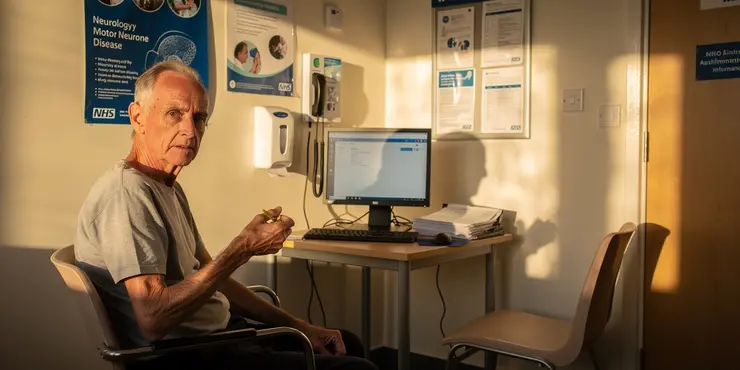
Find Help
More Items From Ergsy search
-
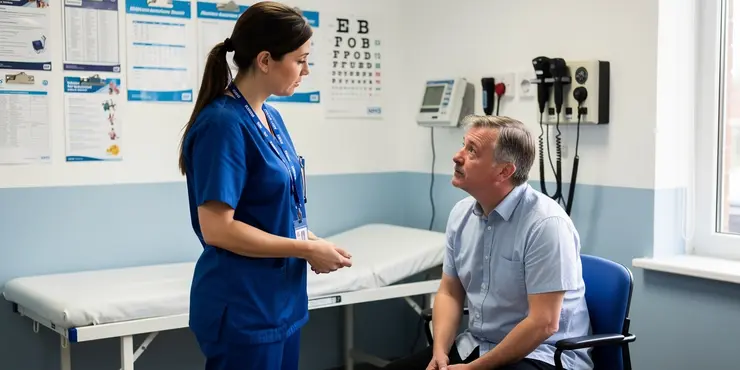
What is motor neurone disease?
Relevance: 100%
-
Is motor neurone disease hereditary?
Relevance: 99%
-

What causes motor neurone disease?
Relevance: 98%
-
Are there different types of motor neurone disease?
Relevance: 98%
-
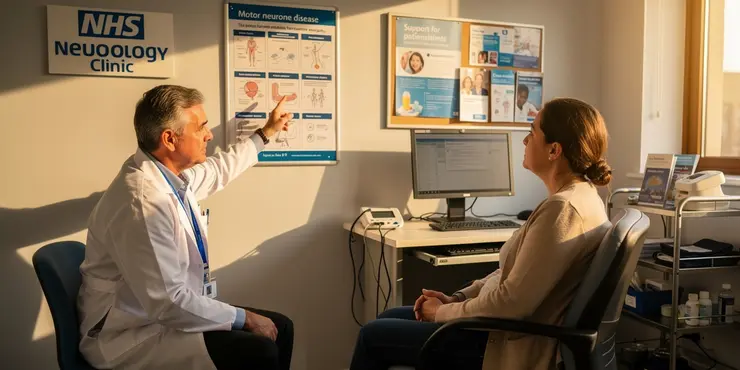
Is there a cure for motor neurone disease?
Relevance: 95%
-
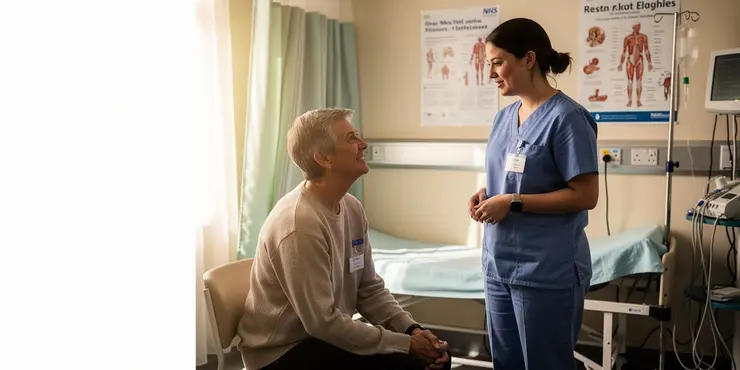
What are the primary symptoms of motor neurone disease?
Relevance: 91%
-
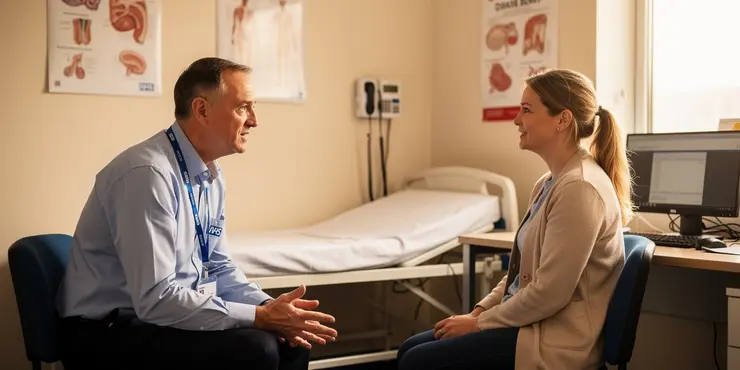
How is motor neurone disease diagnosed?
Relevance: 88%
-

What treatments are available for motor neurone disease?
Relevance: 87%
-

How is breathing affected by motor neurone disease?
Relevance: 87%
-
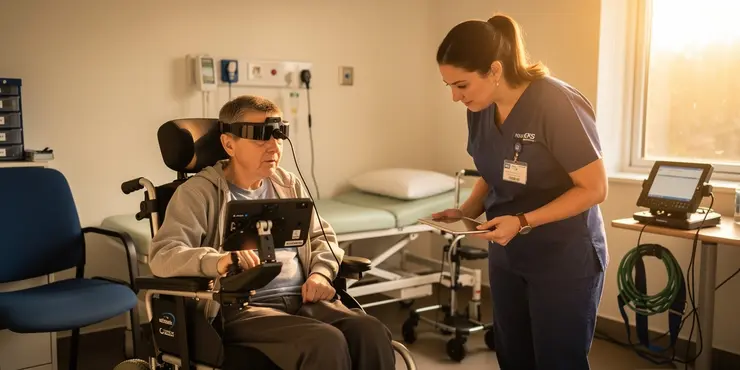
What assistive devices can help people with motor neurone disease?
Relevance: 86%
-

What role do genetics play in motor neurone disease?
Relevance: 85%
-

Motor neurone disease Julie's story | NHS
Relevance: 83%
-
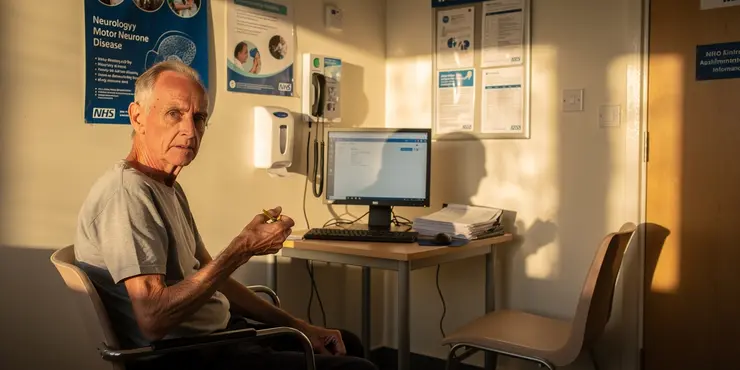
How does motor neurone disease affect the body?
Relevance: 81%
-
How does motor neurone disease affect speech?
Relevance: 81%
-
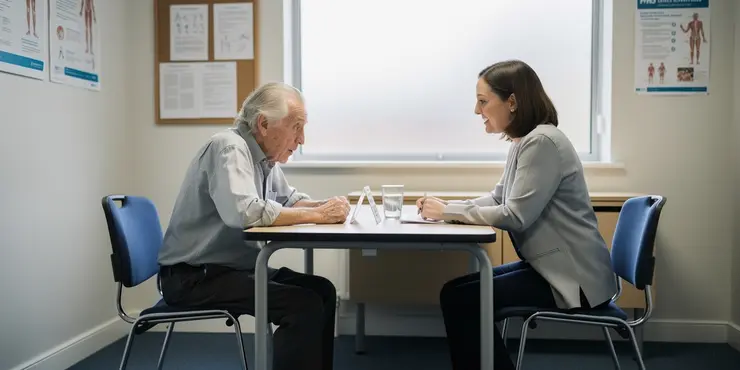
How does motor neurone disease impact swallowing?
Relevance: 79%
-
Can lifestyle changes impact motor neurone disease progression?
Relevance: 77%
-
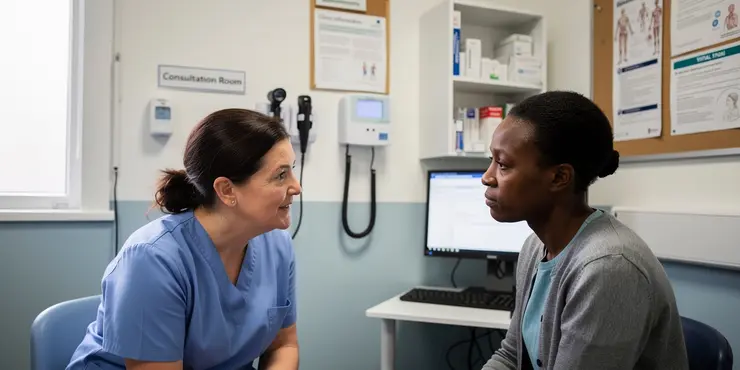
What is the life expectancy after a motor neurone disease diagnosis?
Relevance: 76%
-

Voice banking service helps people live with motor neurone disease
Relevance: 76%
-

How can caregivers support someone with motor neurone disease?
Relevance: 71%
-

Are there support groups for individuals with motor neurone disease?
Relevance: 66%
-
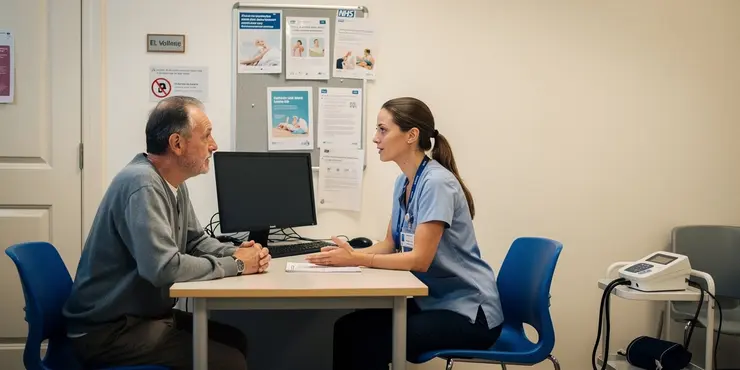
Who is at risk for motor neurone disease?
Relevance: 65%
-
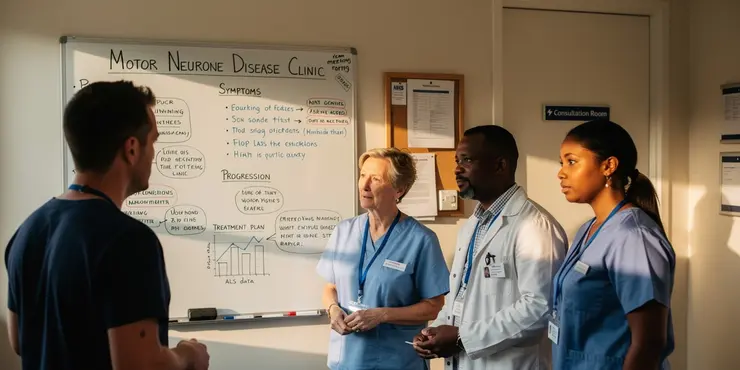
What research is being done on motor neurone disease?
Relevance: 64%
-
How does Huntington's disease affect movement?
Relevance: 40%
-

What is MND?
Relevance: 40%
-
What is Parkinson's disease?
Relevance: 36%
-
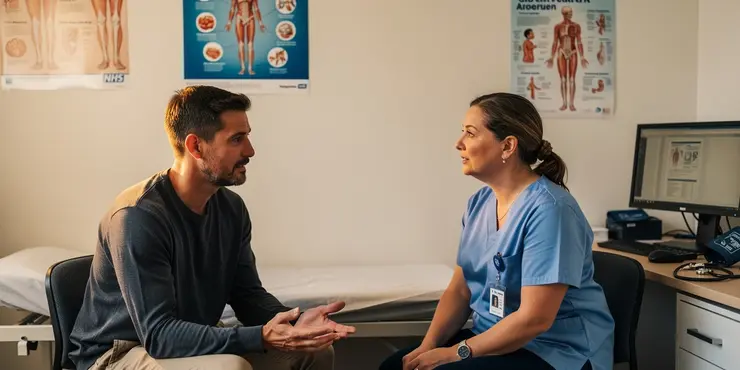
What causes Huntington's disease?
Relevance: 35%
-
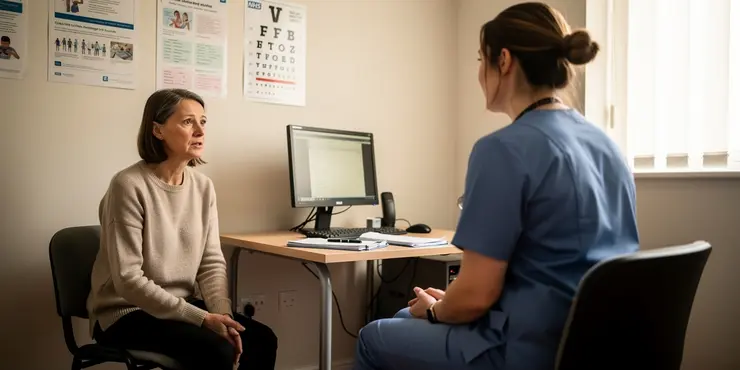
What are the symptoms of Huntington's disease?
Relevance: 32%
-

Is Huntington's disease fatal?
Relevance: 32%
-
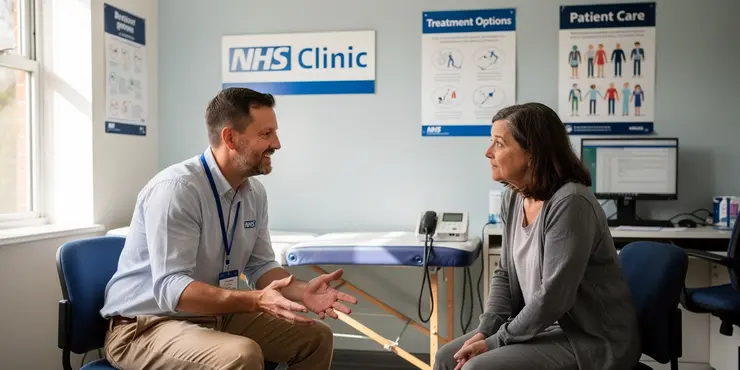
What research is being done on Huntington's disease?
Relevance: 32%
-

What causes Alzheimer's disease?
Relevance: 30%
-
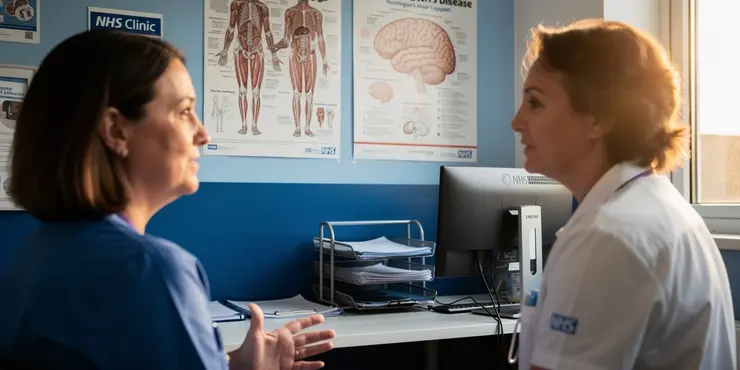
What is Huntington's disease?
Relevance: 27%
-

Can Huntington's disease be prevented?
Relevance: 27%
-
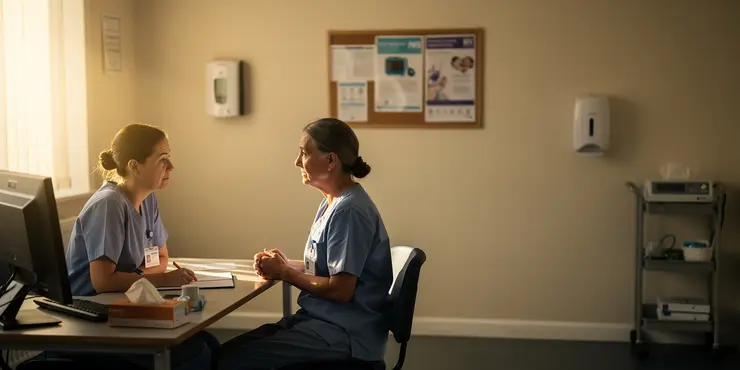
Can Huntington's disease be cured?
Relevance: 26%
-
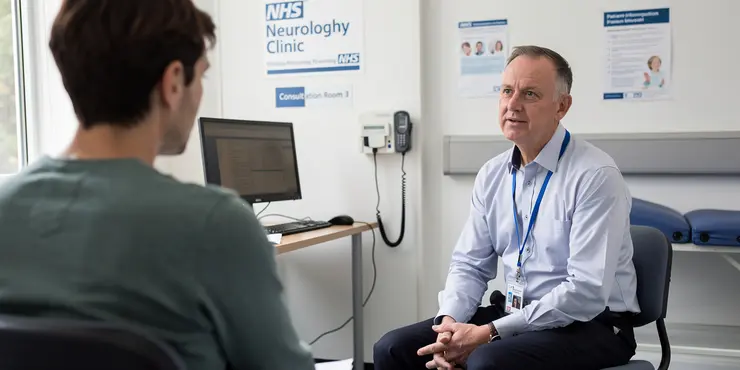
What kinds of specialists are involved in treating Huntington's disease?
Relevance: 25%
-

How is Huntington's disease diagnosed?
Relevance: 25%
-
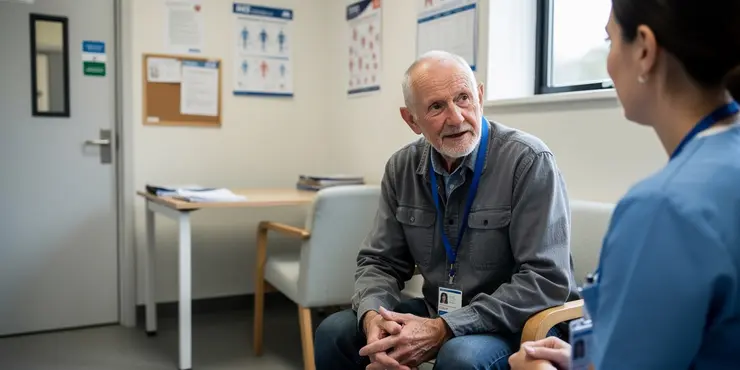
Parkinson’s Disease and NHS RightCare: Long Term Condition Scenario
Relevance: 25%
-

How does Huntington's disease affect emotions?
Relevance: 24%
-
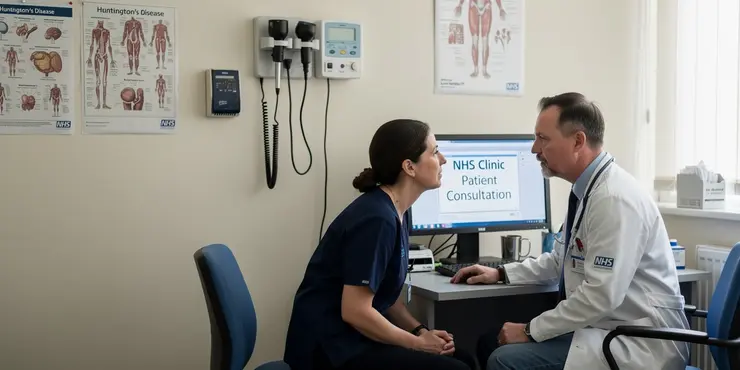
How does Huntington's disease affect cognition?
Relevance: 24%
-

What are the stages of Alzheimer's disease?
Relevance: 23%
-
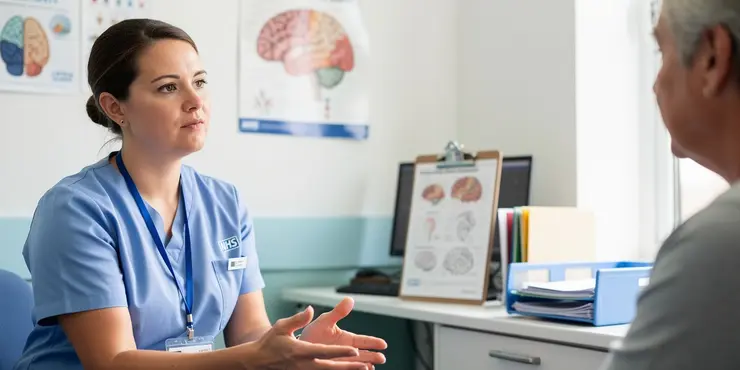
An introduction to frontotemporal dementia (FTD) (part 1/3)
Relevance: 23%
Introduction to Motor Neurone Disease
Motor Neurone Disease (MND) is a progressive neurodegenerative disorder that affects the nerves known as motor neurones in the brain and spinal cord. These neurones are essential for controlling voluntary muscle activity such as speaking, walking, swallowing, and breathing. When these neurones degenerate and die, the muscles they control gradually weaken and waste away, leading to a range of physical disabilities.
Initial Symptoms of Motor Neurone Disease
The symptoms of MND can vary from person to person and depend on which neurones are affected first. Initial symptoms often appear subtly and can be easy to overlook. Common early signs include muscle weakness, particularly in the hands, arms, or legs, which can lead to difficulty with tasks such as buttoning a shirt or holding objects. People might also experience muscle cramps, twitching (fasciculations), and slurred speech.
Progression and Impact on the Body
As MND progresses, the impact on the body becomes more pronounced. The weakness spreads to other muscle groups, making movement increasingly difficult. Over time, this can lead to significant mobility challenges, often necessitating the use of a wheelchair. Patients may also experience difficulty in speaking and swallowing, known as dysarthria and dysphagia, respectively. These symptoms can greatly affect a person's ability to communicate and eat, potentially leading to nutritional issues.
Respiratory Complications
One of the most serious effects of MND is its impact on the respiratory system. As the disease progresses, the muscles involved in breathing, such as the diaphragm, weaken. This can lead to respiratory insufficiency, where the body cannot get enough oxygen or rid itself of carbon dioxide effectively. Patients might require mechanical ventilation support to assist with breathing. Respiratory complications are often the leading cause of death in people with MND.
Cognitive and Emotional Effects
While MND primarily affects physical abilities, it can also have cognitive and emotional impacts. Some people with MND may experience changes in their thinking and behavior, a condition known as frontotemporal dementia (FTD). This can manifest as difficulties with planning, decision-making, and understanding complex ideas. Moreover, living with a progressive and incurable disease can lead to emotional and psychological challenges, including depression and anxiety.
Management and Support
There is currently no cure for MND, but various treatments and therapies can help manage symptoms and improve quality of life. Multidisciplinary care involving neurologists, physiotherapists, speech therapists, and dietitians can provide comprehensive support. Assistive devices, nutritional support, and respiratory aids are often employed to help maintain independence and comfort. Additionally, palliative care services can offer essential support in managing symptoms and improving quality of life in later stages of the disease.
Introduction to Motor Neurone Disease
Motor Neurone Disease (MND) is a sickness that harms the nerves in the brain and spine. These nerves help us do things like talk, walk, swallow, and breathe. When the nerves get sick and stop working, the muscles they control become weak. This makes moving our bodies difficult.
Initial Symptoms of Motor Neurone Disease
MND can make people feel weak in different ways. The first signs can be hard to notice. Some early signs are weak muscles in the hands, arms, or legs. This can make it hard to do things like buttoning a shirt or holding things. People might also have muscle cramps, twitching, and trouble speaking clearly.
Progression and Impact on the Body
As MND gets worse, it affects the body more. Weakness spreads to other muscles, making it very hard to move. Many people need a wheelchair to get around. Speaking and swallowing become difficult, which means talking and eating can be hard too. This can make it difficult to get the food the body needs.
Respiratory Complications
MND can also make breathing hard. The muscles that help us breathe get weak. This means the body might not get enough air. Some people need machines to help them breathe. Breathing problems can become very serious and are often the main reason people with MND pass away.
Cognitive and Emotional Effects
Besides affecting the body, MND can also change the way a person thinks and feels. Some people have trouble planning and making decisions. This is called frontotemporal dementia (FTD). Living with MND can also make people feel very sad or worried.
Management and Support
There is no cure for MND yet. But there are ways to make living with MND easier. Doctors and therapists work together to help people with MND. Special tools, diets, and machines can help them live more comfortably. Palliative care can also help manage symptoms and improve life when the disease gets worse.
Frequently Asked Questions
What is motor neurone disease (MND)?
Motor neurone disease (MND) is a progressive neurological disorder that affects the nerve cells (neurons) responsible for controlling voluntary muscles.
How does MND affect the body?
MND affects the body by causing the degeneration of motor neurons, leading to gradual muscle weakness and wasting as communication between the brain and muscles is disrupted.
What are the main symptoms of MND?
The main symptoms of MND include muscle weakness, muscle wasting, twitching, stiffness, and difficulty speaking, swallowing, or breathing.
How does MND progress in the body?
MND typically progresses by gradually worsening muscle weakness and atrophy, often spreading from one muscle group to others, impacting mobility and daily function.
Which parts of the body are first affected by MND?
MND often first affects the hands or arms, leading to difficulty with motor tasks, or the legs, causing issues with walking and balance.
Can MND affect breathing?
Yes, MND can affect breathing as it progresses by weakening the respiratory muscles, leading to respiratory difficulties and, eventually, dependence on ventilatory support.
Does MND affect cognitive function?
While primarily a motor disorder, some forms of MND are associated with cognitive changes, and a subset of patients may develop frontotemporal dementia.
What is the impact of MND on speech and communication?
MND can impact speech by weakening the muscles involved in talking, leading to slurred speech and difficulties with articulation as the disease progresses.
Are all types of MND the same?
No, there are several types of MND, including amyotrophic lateral sclerosis (ALS), primary lateral sclerosis (PLS), progressive muscular atrophy (PMA), and progressive bulbar palsy (PBP). Each type has different patterns of progression and symptoms.
How does MND affect swallowing?
As MND progresses, it can weaken the muscles involved in chewing and swallowing, leading to dysphagia, which increases the risk of choking and aspiration.
What are fasciculations in MND?
Fasciculations are spontaneous muscle twitches under the skin commonly seen in MND, resulting from the irritation of nerves as motor neurons deteriorate.
How quickly does MND usually progress?
MND progression can vary widely; however, symptoms generally worsen over months to years, with some patients experiencing faster progression than others.
Is there a cure for MND?
There is currently no cure for MND. Treatment focuses on symptom management, slowing disease progression, and improving quality of life.
How does MND affect daily life?
MND affects daily life by progressively impairing mobility, dexterity, communication, eating, and breathing, necessitating various adaptations and support.
Can physical therapy help people with MND?
Yes, physical therapy can help maintain mobility, reduce muscle stiffness, and manage pain, improving the quality of life for individuals with MND.
What is the life expectancy of someone with MND?
The life expectancy for someone with MND varies, with the average being 3 to 5 years from onset, but some individuals may live longer with proper care and support.
How does MND affect mental health?
MND can significantly impact mental health, leading to anxiety, depression, and emotional distress due to the progressive nature and challenges posed by the disease.
What assistive devices are available for those with MND?
Assistive devices for MND patients include wheelchairs, communication aids, feeding tubes, ventilation support, and home modifications for accessibility.
How is MND diagnosed?
MND is diagnosed through clinical examination, electromyography, nerve conduction studies, and ruling out other conditions with similar symptoms through various tests.
Can genetic factors contribute to MND?
Yes, genetic factors can contribute to MND, with about 5-10% of cases being familial, linked to specific gene mutations. Most cases, however, are sporadic with no known family history.
What is motor neurone disease (MND)?
Motor neurone disease, or MND, is an illness. It attacks the nerves in the brain and spine. These nerves help muscles work.
When someone has MND, their muscles get weaker. It gets harder for them to move, talk, and even breathe.
People who have MND need extra help. Using special tools, like wheelchairs or speech machines, can be useful.
It is important to talk to a doctor. They can explain how to get the right care and support for people with MND.
Motor neurone disease (MND) is an illness that gets worse over time. It affects the nerve cells in your body. These nerve cells help your muscles move when you want them to.
What does MND do to the body?
MND stands for Motor Neurone Disease. It is an illness that can make it hard for the brain to talk to the muscles.
Here is what MND can do:
- Muscles can get weak and tired.
- It can be hard to move, walk, or lift things.
- Sometimes, it is hard to swallow food or talk.
- Breathing can also get difficult.
If you or someone you know has MND, you can try these tips:
- Use simple pictures or words to help talk and stay connected.
- Rest often to save energy.
- Work with doctors and therapists to find the best ways to help the body.
MND is a sickness that stops muscles from working over time. It makes the muscles weak because the brain can't talk to the muscles properly. It happens because the special cells that help move the muscles get broken.
What are the main signs of MND?
MND stands for Motor Neurone Disease. It is a condition that affects the nerves in the body. Here are some common signs of MND:
- Muscles feel weak
- Problems walking or moving
- Trouble speaking or swallowing
- Body shakes or twitches
If you feel worried about these signs, tell a doctor. You can use pictures or simple words to explain how you feel.
Main signs of MND:
- Muscles get weak
- Muscles get smaller
- Muscles twitch
- Muscles feel stiff
- It is hard to talk
- It is hard to swallow
- It is hard to breathe
Extra help:
- Use pictures to understand better.
- Ask someone to explain if you have questions.
What happens to the body with MND?
MND is short for Motor Neurone Disease. It is a sickness that affects the nerves in your body. These nerves help your muscles move.
When someone has MND, the nerves stop working over time. This means that the muscles get weaker. It can become hard to move, talk, or even breathe.
If you have questions about MND, talk to a doctor. They can help and give you more information.
Using pictures or videos can help you understand better. Ask someone you trust to explain or read with you, if needed.
MND is a sickness that makes muscles get weaker and smaller. This can start in one part of the body and slowly move to other parts. It can make it hard to move and do everyday things.
What body parts get sick first with MND?
MND makes some body parts sick. It usually starts by hurting your hands or feet. Muscles may feel weak or hard to move. This is because MND affects the nerves that help muscles work.
If you or someone you know has trouble with this, you can use tools to help, like talking with a doctor, using special equipment, or joining support groups.
MND can make your hands and arms weak. This can make it hard to do things like picking up objects or writing. It can also make your legs weak, making it hard to walk or stay balanced.
Can MND make it hard to breathe?
MND can make breathing tough. MND stands for Motor Neurone Disease. It affects the nerves that help muscles work.
Here are some ways to make it easier:
- Breathing exercises: Practice simple breathing exercises with a doctor or therapist.
- Using devices: Some machines can help breathe at night.
- Talking to experts: Doctors and nurses can give advice and help you breathe better.
Yes, MND can make it hard to breathe. This happens because the muscles that help you breathe get weaker. When this happens, some people might need special machines to help them breathe.
Here are some things that might help:
- Talk to a doctor. They can give you the right help and advice.
- Use breathing exercises. These can make your breathing muscles stronger.
- Get help from a breathing machine if you need it.
Does MND affect thinking and memory?
MND mostly affects how we move, but it can also change how we think. Some people with MND might get a type of memory problem called frontotemporal dementia.
How does MND affect talking and understanding?
MND can make talking hard. It can also make it tough to understand others.
Here are some things that might help:
- Use pictures or drawings to show what you mean.
- Try to speak slowly and clearly.
- Use a tool, like a tablet, to type messages.
- Ask people to speak slowly so you can understand them.
MND makes it hard to talk because it makes the talking muscles weak. This can make speech sound slurred or unclear as the illness gets worse.
Is all MND the same?
No, there are different types of MND.
MND is short for Motor Neurone Disease.
Each type affects the body in different ways.
Tools to Help
Here are some things that might help you:
- Talk to a doctor or nurse for advice.
- Use pictures and simple words to learn more.
- Ask someone to help you read or listen to information.
No, there are different kinds of MND. These include:
- ALS (amyotrophic lateral sclerosis)
- PLS (primary lateral sclerosis)
- PMA (progressive muscular atrophy)
- PBP (progressive bulbar palsy)
Each type is different. They change and show signs in different ways.
For help with reading, you can use tools like audiobooks or ask someone to read with you. You can also use apps that read text out loud.
How does MND affect swallowing?
MND is short for Motor Neuron Disease. It is an illness that hurts the nerves in your body.
When you have MND, it can be hard to swallow food or drinks.
This happens because the muscles in your mouth and throat may get weak.
Here are some tips to help with swallowing:
- Take small bites and sips.
- Eat soft or mashed food.
- Drink thick drinks like smoothies.
If you have trouble swallowing, talk to a doctor or a speech therapist. They can help you find ways to eat and drink safely.
When someone has MND, their muscles can get weaker. This makes it hard to chew and swallow food. This is called dysphagia. It can also make choking more likely.
There is a higher chance that food or drink might go down the wrong way and get into the lungs.
Here are some tips to help:
- Take small bites.
- Eat slowly.
- Try softer or blended foods.
- Use special cups or utensils if needed.
- Work with a speech therapist who can give more help.
What Are Muscle Twitches in MND?
MND can make muscles twitch. These twitches are called "fasciculations." They are small movements in your muscles. They can't be controlled.
What to Watch: Sometimes, you can see the muscle move. It might feel like tiny jumps under the skin.
Getting Help: If you have muscle twitches, tell a doctor. They can help and check what is happening.
Fasciculations are small, jumpy movements you see under the skin. These happen when muscles twitch on their own. It is common in Motor Neurone Disease (MND). This happens because nerves are bothered as motor neurons get worse.
How Fast Does MND Get Worse?
MND stands for Motor Neurone Disease. It is a sickness that gets worse over time.
MND can get worse quickly or slowly. This can be different for each person.
To help understand, we can use pictures or videos. Talking to doctors can also help. They can explain MND in simple words.
There are people and tools that help with talking, moving, and doing things. They can make life easier if someone has MND.
MND gets worse differently for each person. For some, it might take months, and for others, it could take years. Some people will notice changes happen quicker than others.
Can MND be Fixed?
MND stands for Motor Neurone Disease. Right now, there is no magic cure that can make it go away. But scientists are working hard to find one. There are medicines that can help make some symptoms better.
If you or someone you know has MND, it is important to talk to a doctor. They can help with advice and support.
Using tools like talking apps or support groups can also be helpful. These can make things easier to understand and support people with MND.
There is no cure for MND right now. Treatment helps with symptoms, slows down the disease, and makes life better.
How does MND affect daily life?
MND is short for Motor Neurone Disease. It can make simple things hard to do. This is because it stops nerves working well. Here is how it can change daily life:
- Moving around: You might find it hard to walk or use your arms.
- Talking: It can get tough to speak clearly, so people might need to listen carefully.
- Eating and drinking: Swallowing food or drinks can be tricky.
- Breathing: You might need extra help from a machine to breathe.
Here are some tools and tips to help:
- Use a wheelchair: It can help you move from place to place.
- Speech boards or apps: These can help you tell others what you want to say.
- Eating soft foods: This can make swallowing easier.
- Special breathing machines: These assist with breathing if needed.
MND makes daily life harder because it slowly makes it tough to move, use your hands, talk, eat, and breathe. People need different kinds of help to manage these changes.
Can physical therapy help people with MND?
People with MND have problems with their muscles. Muscles may get weak or stiff. Physical therapy can help keep muscles strong and flexible.
Therapists show exercises. These exercises help people move better. Moving helps feel better and can make daily tasks easier.
Tools can help too. Special tools help with walking or sitting. Ask a therapist about tools that can help.
When you exercise, remember:
- Go slowly and be gentle. Don't push too hard.
- Stop if something hurts.
- Ask for help if needed.
Exercise can make a big difference. Talk to a doctor or therapist to learn more.
Yes, physical therapy can help. It keeps you moving, makes your muscles less stiff, and helps with pain. This makes life better for people with MND.
How long do people with MND live?
Most people with MND live for about 2 to 5 years after their symptoms begin. Some people can live longer, even more than 10 years.
If you want help reading, you can:
- Ask a friend or family member to read with you.
- Use tools that read the text out loud, like speech-to-text apps.
- Break the text into smaller parts and read slowly.
People with MND usually live for 3 to 5 years after they start getting sick. But some people can live longer if they have good care and support.
How does MND affect mental health?
MND, or Motor Neurone Disease, can change how you feel and think.
MND might make you feel sad or worried. It can be hard because your body is changing.
Talking to someone you trust can help. You can talk to a doctor or a friend.
Writing about your feelings in a diary can make you feel better.
There are support groups where you can meet people who understand MND.
MND can make people feel very sad or worried. This happens because the illness gets worse over time, and it can be hard to manage.
What tools can help people with MND?
People with MND may need special tools to help them. Here are some:
- Wheelchairs: These help people move around if walking is hard.
- Communication Devices: These help people talk if speaking is hard.
- Computer Tools: These help people use computers more easily.
- Eating Aids: These help people eat on their own.
Doctors and therapists can help find the right tools for everyone.
To help people with MND (Motor Neurone Disease), we use special tools. These tools can be:
- Wheelchairs to help them move around.
- Communication aids to help them talk with others.
- Feeding tubes to help them eat.
- Ventilation support to help them breathe.
- Changes to their homes to make things easier to reach and use.
How do doctors know if someone has MND?
MND stands for Motor Neurone Disease. It is a sickness that affects the nerves in our body. Doctors use some tests to find out if someone has MND. Here is how they do it:
- Talk to the Patient: The doctor will ask the person about their feelings and look for signs like weak muscles.
- Medical Tests: Doctors use machines to scan the body. They look at the muscles and nerves.
- Blood Tests: A small sample of blood is taken to check for anything unusual.
If you want, you can bring a friend or family member to help you understand the doctor's advice. You can also ask the doctor to explain things slowly or use pictures to help you understand better.
Doctors find out if someone has MND by doing a few tests. They check the body, listen to how you feel and how your muscles move, and use special machines to look at how your nerves and muscles are working. They also do other tests to make sure it's not something else.
Can genes help cause MND?
Yes, genes can be a cause for MND. About 5-10% of people with MND have it because of their family genes. This is called familial MND. It happens because of changes in certain genes. But most people with MND do not have family members with the disease. This is called sporadic MND, and we don't know why it happens.
Useful Links
This website offers general information and is not a substitute for professional advice.
Always seek guidance from qualified professionals.
If you have any medical concerns or need urgent help, contact a healthcare professional or emergency services immediately.
Some of this content was generated with AI assistance. We’ve done our best to keep it accurate, helpful, and human-friendly.
- Ergsy carfully checks the information in the videos we provide here.
- Videos shown by Youtube after a video has completed, have NOT been reviewed by ERGSY.
- To view, click the arrow in centre of video.
- Most of the videos you find here will have subtitles and/or closed captions available.
- You may need to turn these on, and choose your preferred language.
- Go to the video you'd like to watch.
- If closed captions (CC) are available, settings will be visible on the bottom right of the video player.
- To turn on Captions, click settings .
- To turn off Captions, click settings again.
More Items From Ergsy search
-

What is motor neurone disease?
Relevance: 100%
-
Is motor neurone disease hereditary?
Relevance: 99%
-

What causes motor neurone disease?
Relevance: 98%
-
Are there different types of motor neurone disease?
Relevance: 98%
-

Is there a cure for motor neurone disease?
Relevance: 95%
-

What are the primary symptoms of motor neurone disease?
Relevance: 91%
-

How is motor neurone disease diagnosed?
Relevance: 88%
-

What treatments are available for motor neurone disease?
Relevance: 87%
-

How is breathing affected by motor neurone disease?
Relevance: 87%
-

What assistive devices can help people with motor neurone disease?
Relevance: 86%
-

What role do genetics play in motor neurone disease?
Relevance: 85%
-

Motor neurone disease Julie's story | NHS
Relevance: 83%
-

How does motor neurone disease affect the body?
Relevance: 81%
-
How does motor neurone disease affect speech?
Relevance: 81%
-

How does motor neurone disease impact swallowing?
Relevance: 79%
-
Can lifestyle changes impact motor neurone disease progression?
Relevance: 77%
-

What is the life expectancy after a motor neurone disease diagnosis?
Relevance: 76%
-

Voice banking service helps people live with motor neurone disease
Relevance: 76%
-

How can caregivers support someone with motor neurone disease?
Relevance: 71%
-

Are there support groups for individuals with motor neurone disease?
Relevance: 66%
-

Who is at risk for motor neurone disease?
Relevance: 65%
-

What research is being done on motor neurone disease?
Relevance: 64%
-
How does Huntington's disease affect movement?
Relevance: 40%
-

What is MND?
Relevance: 40%
-
What is Parkinson's disease?
Relevance: 36%
-

What causes Huntington's disease?
Relevance: 35%
-

What are the symptoms of Huntington's disease?
Relevance: 32%
-

Is Huntington's disease fatal?
Relevance: 32%
-

What research is being done on Huntington's disease?
Relevance: 32%
-

What causes Alzheimer's disease?
Relevance: 30%
-

What is Huntington's disease?
Relevance: 27%
-

Can Huntington's disease be prevented?
Relevance: 27%
-

Can Huntington's disease be cured?
Relevance: 26%
-

What kinds of specialists are involved in treating Huntington's disease?
Relevance: 25%
-

How is Huntington's disease diagnosed?
Relevance: 25%
-

Parkinson’s Disease and NHS RightCare: Long Term Condition Scenario
Relevance: 25%
-

How does Huntington's disease affect emotions?
Relevance: 24%
-

How does Huntington's disease affect cognition?
Relevance: 24%
-

What are the stages of Alzheimer's disease?
Relevance: 23%
-

An introduction to frontotemporal dementia (FTD) (part 1/3)
Relevance: 23%


